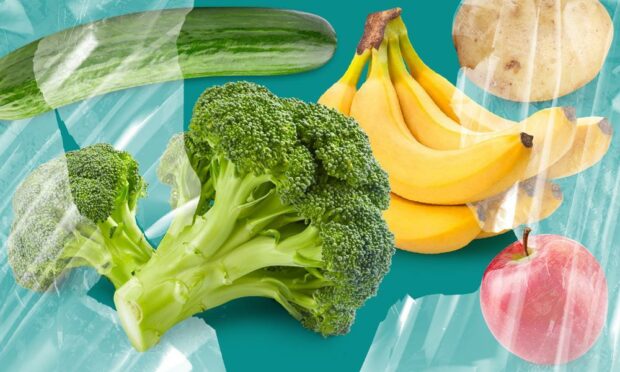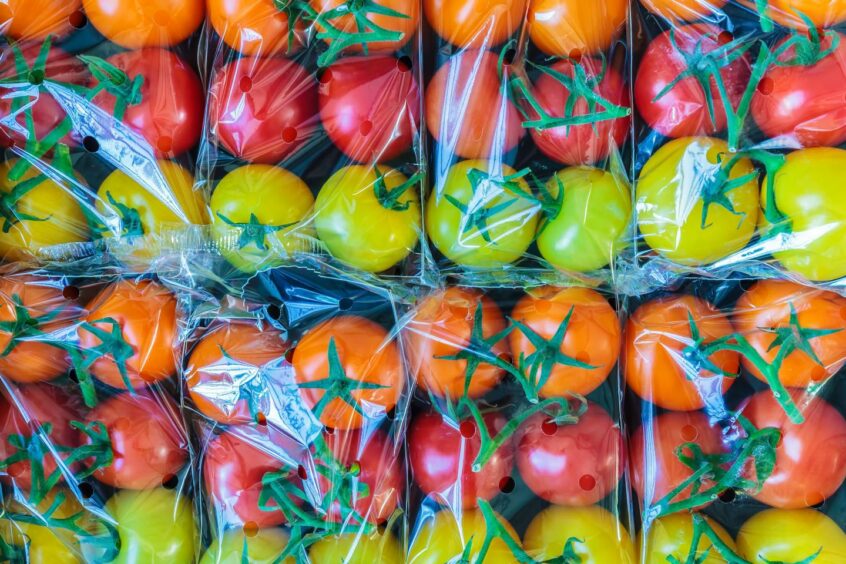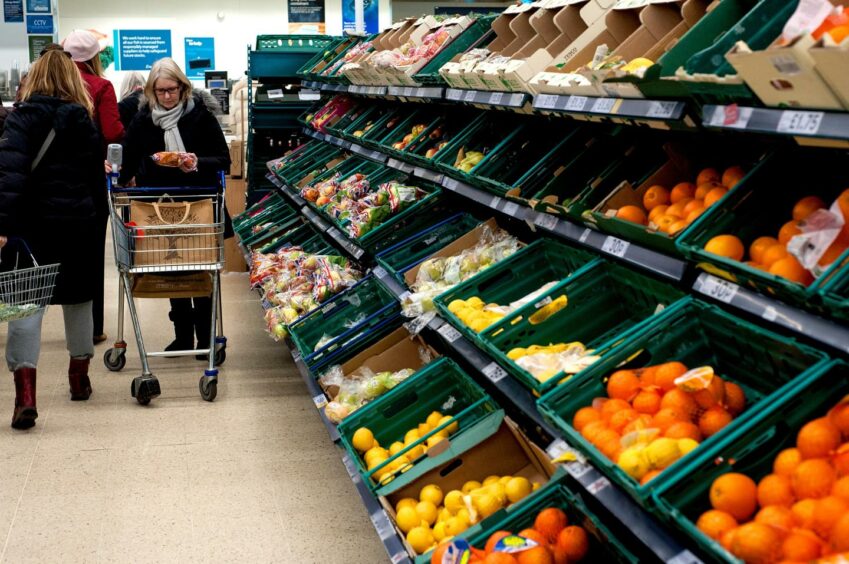Selling fruit and vegetables loose and getting rid of best-before labels could save hundreds of thousands of tonnes of plastic and food waste each year, it has been argued.
Food waste charity WRAP recently undertook an 18-month project to examine the link between packaging and food waste in our homes, and the results are clear.
By selling fresh produce loose, shoppers are able to buy the right amount of food for their needs, and removing the date label stops consumers from throwing away food unnecessarily.
Now, the NGO wants to use this data to challenge the “status quo” and get retailers to change the way they sell their fruit and vegetables.
But doesn’t plastic packaging preserve fresh produce better?
The study examining the link between plastic packaging and food waste has challenged the accepted thinking that packaging helps to preserve fresh produce.
“While packaging is important and often carries out a critical role to protect food, we have proven that plastic packaging doesn’t necessarily prolong the life of uncut fresh produce,” said Marcus Gover, CEO of WRAP.
“It can in fact increase food waste in this case.
“We have shown the massive potential to save good food from being thrown away by removing date labels.”
The charity found that selling just five main fruit and veggies loose and removing best before dates could result in a combined saving of around 100,000 tonnes of household food waste, more than 10,300 tonnes of plastic and 130,000 tonnes of CO2e.
How did the study work?
In the year-and-a-half-long study, WRAP focused on five commonly wasted fresh items that typically come wrapped in plastic – apples, bananas, broccoli, cucumber and potatoes.
The charity stored the items in the original packaging, loose and at different temperatures to see if the plastic wrapping made a difference to food spoiling.
What they found was that regardless of packaging, it was the temperature that made the most impact.
Storing fresh produce in the fridge at 4 degrees Celsius meant that foods were still good to eat long after their best-before date.
Apples in particular showed minimal signs of deterioration until two months after their supposed expiry date.
“This important research could be a game-changer in the fight against food waste and plastic pollution,” said Marcus.
“We have demystified the relationship between wasted food, plastic packaging, date labels and food storage.”
Will supermarkets listen?
The results of WRAP’s work has been shared with UK’s largest food retailers, along with their key recommendations of:
- Sell loose – where possible, unless it is shown that plastic packaging reduces overall food waste.
- Remove date labels – unless it can be shown that a best-before reduces overall food waste.
- Refrigerate below 5°C at home – help customers understand the benefits of storing fresh produce in the fridge, set at the right temperature.
Whilst keen for its recommendations to be implemented, the charity acknowledges that this move is likely to take time and requires the whole sector to work together – and bring customers on the journey too.
In the coming months, WRAP is set to consult with the Food Standards Agency, Defra and other industry bodies over the recommendations to develop a pathway for more fresh produce to be sold loose.
“We need retailers to step up and follow our recommendations so we can achieve real progress in tackling food waste and plastic pollution,” said Marcus.
“This helps save the planet and us money at the same time – a real win-win.”


